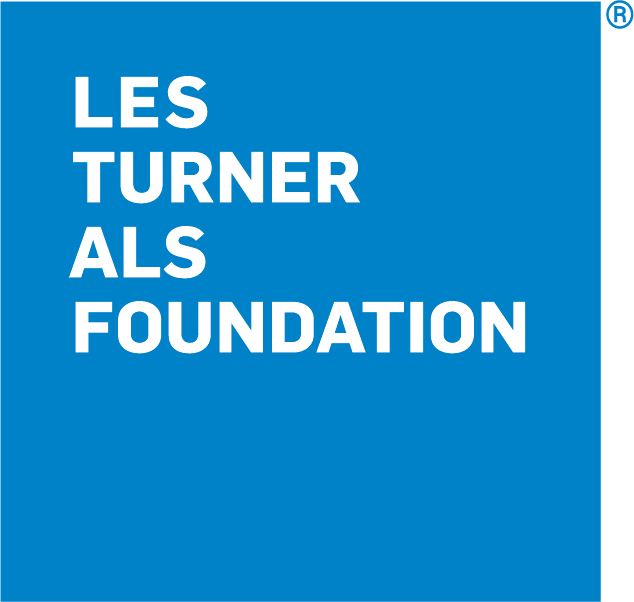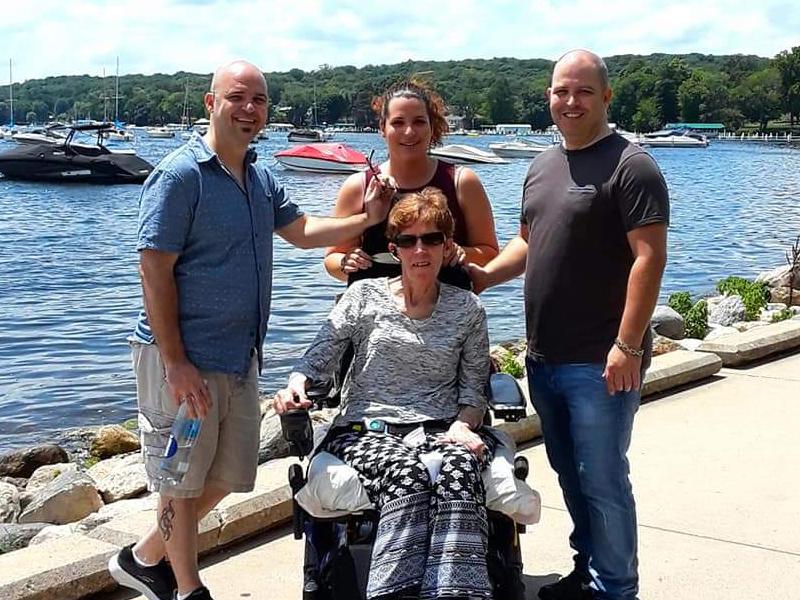As a registered nurse, Tina Cascio cared for several people diagnosed with ALS, including her own mother, Pamela. Prior to her mother’s passing, Tina began to experience symptoms that were eerily familiar.
“I started having muscle spasms and twitching in my legs,” says Tina. “I assumed it was in my head and I was just feeling some of my mom’s symptoms due to stress and exhaustion.”
After her mother passed away and the symptoms returned, Tina contacted her doctor, but it was more than a year before she finally had a full diagnosis.
“My cousin was having the same symptoms,” says Tina. “After a genetic screening, she was diagnosed with SOD1-ALS. That’s when I found out my mother’s ALS was a genetic variant. If I had known that earlier, I’d have been better prepared for the challenges of living with ALS.”
The Les Turner ALS Foundation’s new My ALS Decision Tool™ on Genetic Counseling and Testing for Family Members is designed for people who have a family history of ALS and would like to learn more about whether they or their children are at a higher risk of developing ALS or related neurological conditions.
This first-of-its-kind tool can be a starting point for people to learn more about the benefits and limitations of genetic testing. It can help them make informed decisions, connect to support groups, and request counseling and testing from doctors.
It was developed in collaboration with people living with ALS, caregivers, advocates, researchers, and an international group of genetic counselors from Northwestern Medicine, The Ohio State University Wexner Medical Center, Penn Medicine, and Macquarie University in New South Wales, Australia.
“Family dynamics may cause complicated feelings that keep people from considering genetic counseling and genetic testing,” says Lauren Webb, LCSW, the Foundation’s Chief Advocacy and Outreach Officer. “People with a family history of ALS may not know what they can gain from meeting with a genetic counselor. We want this tool to reach people at risk and change the clinical practice around genetic counseling and testing.”
Genetic mutations occur in less than 20% of people living with ALS. There are over 40 different known genes that are associated with ALS, and researchers are still discovering more. Among the most common are SOD1, FUS, TARDBP, and C9ORF72.
Genetic testing allows people to learn more about their risk of developing what is often called ‘familial’, or inherited, ALS. From genetic counselors, they can receive advice on family planning and future care needs, as well as help in coping with strong emotions and planning conversations with loved ones about test results.
It can also open pathways to participation in clinical trials. With recent progress in the treatment of genetic ALS, this research is more important than ever.
In 1993, the first genetic mutation linked to cause ALS, SOD1, was co-discovered at the Les Turner ALS Center at Northwestern Medicine. In 2023, Biogen’s Qalsody became the first FDA-approved treatment to target a genetic cause of ALS – specifically, SOD1. Study results suggest that an early start and extended use of Qalsody may help stabilize muscle strength and respiratory function, making it important for people with that form of genetic ALS to understand their diagnosis as quickly as possible.
Tina has participated in clinical trials at the Lois Insolia ALS Clinic at the Les Turner ALS Center at Northwestern Medicine. She’s also a member of the board of directors of the Les Turner ALS Foundation, bringing her healthcare expertise and lived experience with ALS to the Foundation’s programs and support services.
“I’m determined to be part of the 10% who survive over a decade with ALS, just like my mother did,” says Tina. “I want everyone to have the chance to be diagnosed as early as possible so they can start receiving the support they need and the multidisciplinary ALS care that can help extend their survival and improve their quality of life.”
Check out the new My ALS Decision Tool™ on Genetic Counseling and Testing for Family Members, and then explore modules on genetic testing for people living with ALS, breathing, and nutrition, along with other ALS education resources.
My Decision Tool™ is made possible by generous donations from the Gilbert & Jacqueline Fern Foundation, Biogen, Cytokinetics Communications Fellowship Grant, Novartis Gene Therapies, and other donors to the Les Turner ALS Foundation.


